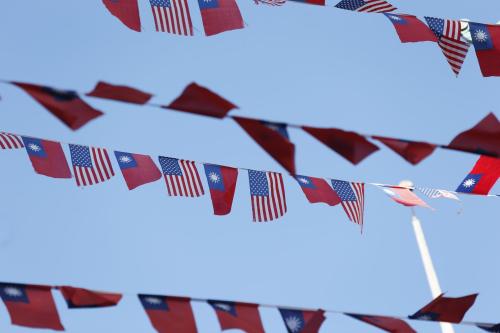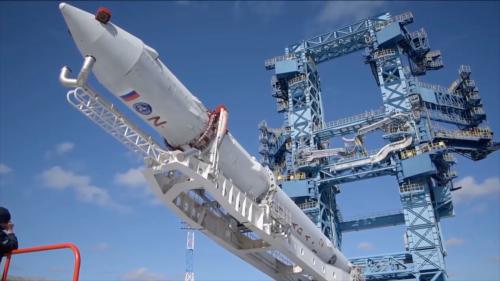All the fuss over last week’s GCC summit distracted from what surely ought to be the most remarked-upon visit to Washington by a Middle Eastern head of state this year.
Tunisian President Mohamed Beji Caid Essebsi will meet President Obama on Thursday, marking a milestone in the American relationship with a democratic Tunisian government. While pessimists bemoan the “failure” of the Arab Spring in light of violence in Libya and Syria, the small North African country that kicked off the revolutions in December 2010 has now held two sets of free national elections, produced and approved a brand-new democratic constitution, and more than once found compromises to resolve political standoffs that threatened violence and the breakdown of the transition.
That Tunisia has managed its democratic transition while managing a struggling economy, absorbing refugees from Libya, and absorbing murderous terrorist attacks is truly miraculous. But these challenges still threaten the country’s delicate political balance. What Tunisia needs, as many commentators have remarked recently, is more robust support from the United States and Europe.
Indeed, the US administration easily recognizes Tunisia’s progress, and its wider significance, and this week’s visit was intended to highlight both. As Deputy Secretary of State Tony Blinken recently noted, “Secretary Kerry has called Tunisia a shining light in the region. The United States is committed to do all that we can to ensure this light continues to shine — and grows even brighter. We’re committed because Tunisia’s future matters — not only to its people, but to people around the world who see in its success hope for their own.” In the context of the past four years of benign neglect from Washington, the Oval Office visit is a small but important step, and only just begins to recognized the significance to US policy goals of the Arab world’s single successful democratic polity — one that, while still fragile and while it might not be a transferable model, still offers a much-needed counterexample to the civil war and state repression that characterize the rest of the post-Arab-Spring countries.
So if everyone agrees that Tunisia deserves stronger political, economic, and security support, why did the White House spend weeks touting its mediocre GCC summit while Essebsi is barely a footnote? Why not spotlight this visit, which symbolizes tolerance, inclusion, political compromise, democracy and free markets along with a commitment to counterterrorism — in other words, everything President Obama says he supports in the region? Why did it take until February 2015 for the administration to ask Congress for increased bilateral economic assistance? Why has the administration resisted even opening free-trade talks with a country for which such talks would send a powerful signal of support? Why has Vice President Biden visited Morocco, and President Obama visited Riyadh, but neither has visited Tunis?
In fact, the Obama Administration’s lagging support for Tunisia says much more about the state of things in Washington than in Tunis. The obstacles to more ambitious aid programs, more intensive political dialogue, and more robust engagement on trade are not hard to find inside the Beltway: budget cuts make it hard to expand embassies, and budget battles in Congress leave the State Department and USAID unable to make new multi-year aid commitments to countries that aren’t already major US allies. Post-Benghazi security fears (and fears of congressional microscopes, and resulting State Department risk-aversion) also have stymied efforts to add embassy personnel in Tunis. Domestic anti-trade politics have made opening free-trade talks toxic, even though their impact on the US economy would be negligible.
American officials have promised for years — Obama more concretely than most — that Arab countries making progress toward democracy will earn closer and more beneficial ties to the West. But given the state of things in Washington, you can understand the Arab cynicism about an American policy that’s been far more rhetoric than reality.
The American people’s focus in the Middle East is on getting out, and on killing terrorists so that we don’t have to go back; administration energy is thus focused on tamping down threats like ISIS and Iran, while calming existing allies like the GCC states. Likewise, the only aid increases that get through Congress are those tied to fighting terrorism. Little wonder that the most high-profile support provided by the United States to Tunisia this year has been armored vehicles, and the biggest deliverable from the White House to Essebsi is a promise to double military aid.
Tunisia’s vulnerability is real, as is its need for security support. But a relationship with Washington that’s overly rooted in security cooperation risks repeating the same mistake US administrations made for years with other Arab governments and that brought us neither democracy nor stability (a lesson that Condoleezza Rice noted back in 2005 but failed to follow through on).
President Obama and his team continue to argue that political compromise, inclusion and openness are the fundamental requisites for lasting stability in the Middle East and a lasting blow to the appeal of ISIS and Al Qaeda. Tunisia managed to find its way toward that formula ahead of the rest — and one hopes that Tunisia’s president will come away from his visit to Washington understanding how important it is not to lose sight of that lesson in the face of security challenges. He will only do so, however, if he sees the united commitment of America’s president and Congress to make Tunisia’s gamble on democracy pay off.


Commentary
Security interests overshadow Tunisia’s President Essebsi in Washington
May 19, 2015